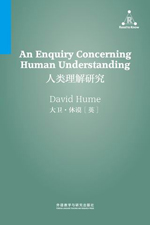comment
ll…
Our inferences regarding matters of fact are ultimately based in
probability. If experience teaches us that two events are conjoined
quite frequently, the mind will infer a strong causal link between them.
All meaningful terms, Hume asserts, must be reducible to the simple
impressions from which they are built up. Since there is no simple
impression of cause and effect or of necessary connection, these terms
might appear meaningless. Rather than condemn them entirely, Hume simply
reduces their scope, suggesting that there is nothing in them that goes
beyond an observation of constant conjunction between two events. Hume
turns these conclusions toward a compatibilist view of free will and
determinism. If we perceive no necessary connection between events, we
needn't worry that all our actions are causally predetermined. Rather
than view free will as the freedom to have done otherwise, we should
view it as the freedom to act according to one's own determinations,
which is true of everyone but prisoners. Near the end of the Enquiry,
Hume follows a number of tangential discussions, arguing that human and
animal reason are analogous, that there is no rational justification for
a belief in miracles nor for the more speculative forms of religious and
metaphysical philosophy. While a skepticism regarding necessary
connection and the existence of an external world is justified, it
destroys our ability to act or judge. The instinctual beliefs formed by
custom help us get by in the world and think prudently. As long as we
restrict our thinking to relations of ideas and matters of fact, we
should be fine, but we should abandon all metaphysical speculations as
superfluous and nonsensical.




 京公网安备 11010802032529号
京公网安备 11010802032529号